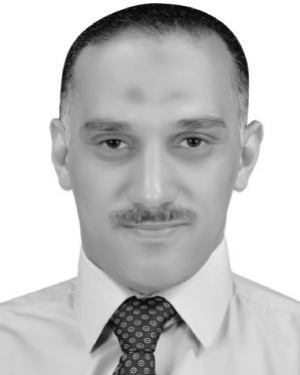A conversational artificial intelligent bot for efficient learning (COFFEE) from a prototypical design to operation
Abstract:
In an ideal world, how individuals learn should align with the methods they are taught. However, this is not always the case, and it is necessary to reconsider the approa...Show MoreMetadata
Abstract:
In an ideal world, how individuals learn should align with the methods they are taught. However, this is not always the case, and it is necessary to reconsider the approach to teaching in academic institutions, such as universities, to help students learn at their own pace. Innovative technology plays a vital role in achieving this objective. This study proposes using Artificial Intelligence (AI) to teach in academic institutions. Specifically, an AI-powered conversational bot called Conversational AI Bot for Efficient Learning (COFFEE) is designed, implemented, and will be used as an adaptive learning technology. COFFEE will analyze students’ learning habits and adjust the teaching style based on their strengths and weaknesses. Teaching and learning are closely linked to the disciplinary areas of education, behavior, and technology. Combining these areas into a conversational bot equipped with AI algorithms and access to big data makes it possible to disrupt traditional teaching methods. This will benefit students who require special attention, such as those with severe learning disabilities who cannot receive adequate support from instructors due to time constraints or lack of experience. COFFEE is a valuable tool that can be used in academic institutions at all levels, including primary and secondary education. It will be based on the latest advancements in AI and data science and is designed to be feasible, reliable, and customizable.
A conversational artificial intelligent bot for efficient learning (COFFEE) from a prototypical design to operation
Published in: IEEE Access ( Volume: 12)
Funding Agency:

Department of Computer Science, Electrical and Space Engineering, Luleå University of Technology, Luleå, Sweden
Ahmed Elragal received the B.Sc., M.B.A., and Ph.D. degrees. He was with the Department of Business Informatics and Operations Management, German University in Cairo (GUC), from 2007 to 2018, and the Arab Academy for Science, Technology, and Maritime Transport (AASTMT), from 1992 to 2007. He is currently a Professor in information systems and the Acting Head of subject with Luleå University of Technology (LTU), Sweden. He...Show More
Ahmed Elragal received the B.Sc., M.B.A., and Ph.D. degrees. He was with the Department of Business Informatics and Operations Management, German University in Cairo (GUC), from 2007 to 2018, and the Arab Academy for Science, Technology, and Maritime Transport (AASTMT), from 1992 to 2007. He is currently a Professor in information systems and the Acting Head of subject with Luleå University of Technology (LTU), Sweden. He...View more

College of Information Technology, United Arab Emirates University, Al Ain, United Arab Emirates
Ali Ismail Awad (Senior Member, IEEE) is currently an Associate Professor with the College of Information Technology, United Arab Emirates University (UAEU), Al Ain, United Arab Emirates, where he has been coordinating the Master’s Program in Information Security, since 2022. He is also an Honorary Associate Professor with the University of Nottingham, U.K. He is also an Associate Professor with the Electrical Engineering...Show More
Ali Ismail Awad (Senior Member, IEEE) is currently an Associate Professor with the College of Information Technology, United Arab Emirates University (UAEU), Al Ain, United Arab Emirates, where he has been coordinating the Master’s Program in Information Security, since 2022. He is also an Honorary Associate Professor with the University of Nottingham, U.K. He is also an Associate Professor with the Electrical Engineering...View more

Department of Computer Science, Electrical and Space Engineering, Luleå University of Technology, Luleå, Sweden
Ingemar Andersson received the Ph.Bach. degree in computer and systems sciences from Luleå University of Technology (LTU), Sweden, in 1994, where he is currently pursuing the Ph.D. degree in systems sciences. He became a Microsoft Certified Solutions Developer (MCSD), in 2001. Since 2017, he has been the Educational Leader of the Bachelor’s Programme in Systems Sciences with LTU, where he was a Research Engineer with the ...Show More
Ingemar Andersson received the Ph.Bach. degree in computer and systems sciences from Luleå University of Technology (LTU), Sweden, in 1994, where he is currently pursuing the Ph.D. degree in systems sciences. He became a Microsoft Certified Solutions Developer (MCSD), in 2001. Since 2017, he has been the Educational Leader of the Bachelor’s Programme in Systems Sciences with LTU, where he was a Research Engineer with the ...View more

Department of Computer Science, Electrical and Space Engineering, Luleå University of Technology, Luleå, Sweden
Jörgen Nilsson was born in Gllivare, Sweden, in 1971. He received the B.S. degree in systems science and the Ph.D. degree in digital preservation from Luleå University of Technology (LUT), in 2001 and 2008, respectively. From 2001 to 2004, he was a Lecturer in systems science with the Department of Business Administration and Social Sciences, LUT. After the Ph.D. studies, he was employed as a Researcher with the Departmen...Show More
Jörgen Nilsson was born in Gllivare, Sweden, in 1971. He received the B.S. degree in systems science and the Ph.D. degree in digital preservation from Luleå University of Technology (LUT), in 2001 and 2008, respectively. From 2001 to 2004, he was a Lecturer in systems science with the Department of Business Administration and Social Sciences, LUT. After the Ph.D. studies, he was employed as a Researcher with the Departmen...View more

Department of Computer Science, Electrical and Space Engineering, Luleå University of Technology, Luleå, Sweden
Ahmed Elragal received the B.Sc., M.B.A., and Ph.D. degrees. He was with the Department of Business Informatics and Operations Management, German University in Cairo (GUC), from 2007 to 2018, and the Arab Academy for Science, Technology, and Maritime Transport (AASTMT), from 1992 to 2007. He is currently a Professor in information systems and the Acting Head of subject with Luleå University of Technology (LTU), Sweden. He is also an Adjunct Professor in information systems with the Kristiania University College (KUC), Norway. He has over 90 research papers and articles published at international conferences and journals. He is a member of the editorial board of I & M, Systems, Frontiers in Big Data, and Discover Analytics. He is the co-author of Pearson’s AWE of the MIS textbook (Laudon, Laudon, and Elragal). He is the Winner of the 2010’s International Case Study Competition on “Business Intelligence,” a prestigious international award. He has over 15 years of consulting experience, focused mainly on enterprise systems and business intelligence. He has helped different regional and multinational organizations, such as Region Norrbotten, Volkswagen Group Sverige, Teradata, and Hyperone & Egypt Census Bureau in the areas of big data, information systems, business analytics, data mining, and data architecture for AI. Formerly, he has chaired the MIS Department, AASTMT, and the BI Department, GUC. He is currently the Academic Coordinator of the Data Science Magister Program, LTU.
Ahmed Elragal received the B.Sc., M.B.A., and Ph.D. degrees. He was with the Department of Business Informatics and Operations Management, German University in Cairo (GUC), from 2007 to 2018, and the Arab Academy for Science, Technology, and Maritime Transport (AASTMT), from 1992 to 2007. He is currently a Professor in information systems and the Acting Head of subject with Luleå University of Technology (LTU), Sweden. He is also an Adjunct Professor in information systems with the Kristiania University College (KUC), Norway. He has over 90 research papers and articles published at international conferences and journals. He is a member of the editorial board of I & M, Systems, Frontiers in Big Data, and Discover Analytics. He is the co-author of Pearson’s AWE of the MIS textbook (Laudon, Laudon, and Elragal). He is the Winner of the 2010’s International Case Study Competition on “Business Intelligence,” a prestigious international award. He has over 15 years of consulting experience, focused mainly on enterprise systems and business intelligence. He has helped different regional and multinational organizations, such as Region Norrbotten, Volkswagen Group Sverige, Teradata, and Hyperone & Egypt Census Bureau in the areas of big data, information systems, business analytics, data mining, and data architecture for AI. Formerly, he has chaired the MIS Department, AASTMT, and the BI Department, GUC. He is currently the Academic Coordinator of the Data Science Magister Program, LTU.View more

College of Information Technology, United Arab Emirates University, Al Ain, United Arab Emirates
Ali Ismail Awad (Senior Member, IEEE) is currently an Associate Professor with the College of Information Technology, United Arab Emirates University (UAEU), Al Ain, United Arab Emirates, where he has been coordinating the Master’s Program in Information Security, since 2022. He is also an Honorary Associate Professor with the University of Nottingham, U.K. He is also an Associate Professor with the Electrical Engineering Department, Faculty of Engineering, Al-Azhar University at Qena, Egypt. He was a Visiting Researcher with the University of Plymouth, U.K., from 2018 to 2023. He was an Associate Professor (Docent) with the Department of Computer Science, Electrical and Space Engineering, Luleå University of Technology (LTU), Luleå, Sweden, where he coordinated the Master’s Program in Information Security, from 2017 to 2020. In 2021, he was promoted to a Recognized University Teacher rank with LTU for his pedagogical achievements. His research interests include cybersecurity, network security, the Internet of Things (IoT) security, and image analysis with biometrics and medical imaging applications. He has edited or co-edited several books and authored or co-authored several journal articles and conference papers in these areas. He is an Editorial Board Member of Future Generation Computer Systems, Computers & Security, Internet of Things, Engineering Cyber-Physical Human Systems, Health Information Science and Systems, and Security, Privacy and Authentication Section by Frontiers. He is an ACM Professional Member.
Ali Ismail Awad (Senior Member, IEEE) is currently an Associate Professor with the College of Information Technology, United Arab Emirates University (UAEU), Al Ain, United Arab Emirates, where he has been coordinating the Master’s Program in Information Security, since 2022. He is also an Honorary Associate Professor with the University of Nottingham, U.K. He is also an Associate Professor with the Electrical Engineering Department, Faculty of Engineering, Al-Azhar University at Qena, Egypt. He was a Visiting Researcher with the University of Plymouth, U.K., from 2018 to 2023. He was an Associate Professor (Docent) with the Department of Computer Science, Electrical and Space Engineering, Luleå University of Technology (LTU), Luleå, Sweden, where he coordinated the Master’s Program in Information Security, from 2017 to 2020. In 2021, he was promoted to a Recognized University Teacher rank with LTU for his pedagogical achievements. His research interests include cybersecurity, network security, the Internet of Things (IoT) security, and image analysis with biometrics and medical imaging applications. He has edited or co-edited several books and authored or co-authored several journal articles and conference papers in these areas. He is an Editorial Board Member of Future Generation Computer Systems, Computers & Security, Internet of Things, Engineering Cyber-Physical Human Systems, Health Information Science and Systems, and Security, Privacy and Authentication Section by Frontiers. He is an ACM Professional Member.View more

Department of Computer Science, Electrical and Space Engineering, Luleå University of Technology, Luleå, Sweden
Ingemar Andersson received the Ph.Bach. degree in computer and systems sciences from Luleå University of Technology (LTU), Sweden, in 1994, where he is currently pursuing the Ph.D. degree in systems sciences. He became a Microsoft Certified Solutions Developer (MCSD), in 2001. Since 2017, he has been the Educational Leader of the Bachelor’s Programme in Systems Sciences with LTU, where he was a Research Engineer with the Centre for Long-Term Digital Preservation and a Lecturer in systems sciences, from 2008 to 2017 and from 2002 to 2008, respectively. He has been involved in significant research funding applications, including the ENSURE Project (EU FP7/2011-2014/GA 270000) and the ForgetIT Project (EU FP7/2013-2016/GA 600826). His research interests include digital preservation and systems sciences.
Ingemar Andersson received the Ph.Bach. degree in computer and systems sciences from Luleå University of Technology (LTU), Sweden, in 1994, where he is currently pursuing the Ph.D. degree in systems sciences. He became a Microsoft Certified Solutions Developer (MCSD), in 2001. Since 2017, he has been the Educational Leader of the Bachelor’s Programme in Systems Sciences with LTU, where he was a Research Engineer with the Centre for Long-Term Digital Preservation and a Lecturer in systems sciences, from 2008 to 2017 and from 2002 to 2008, respectively. He has been involved in significant research funding applications, including the ENSURE Project (EU FP7/2011-2014/GA 270000) and the ForgetIT Project (EU FP7/2013-2016/GA 600826). His research interests include digital preservation and systems sciences.View more

Department of Computer Science, Electrical and Space Engineering, Luleå University of Technology, Luleå, Sweden
Jörgen Nilsson was born in Gllivare, Sweden, in 1971. He received the B.S. degree in systems science and the Ph.D. degree in digital preservation from Luleå University of Technology (LUT), in 2001 and 2008, respectively. From 2001 to 2004, he was a Lecturer in systems science with the Department of Business Administration and Social Sciences, LUT. After the Ph.D. studies, he was employed as a Researcher with the Department of Computer Science, Electrical and Space Engineering, in 2009, specializing in digital preservation and thereafter became an Associate Professor, in 2010, with the Department of Computer Science, Electrical and Space Engineering. His research interests include digital preservation and accessibility of digital material, whether preserved or not. He has worked in several framework level EU projects related to securing access to digital data, e.g., the ENSURE Project (EU FP7/2011-2014/GA 270000), and the ForgetIT Project (EU FP7/2013-2016/GA 600826).
Jörgen Nilsson was born in Gllivare, Sweden, in 1971. He received the B.S. degree in systems science and the Ph.D. degree in digital preservation from Luleå University of Technology (LUT), in 2001 and 2008, respectively. From 2001 to 2004, he was a Lecturer in systems science with the Department of Business Administration and Social Sciences, LUT. After the Ph.D. studies, he was employed as a Researcher with the Department of Computer Science, Electrical and Space Engineering, in 2009, specializing in digital preservation and thereafter became an Associate Professor, in 2010, with the Department of Computer Science, Electrical and Space Engineering. His research interests include digital preservation and accessibility of digital material, whether preserved or not. He has worked in several framework level EU projects related to securing access to digital data, e.g., the ENSURE Project (EU FP7/2011-2014/GA 270000), and the ForgetIT Project (EU FP7/2013-2016/GA 600826).View more

